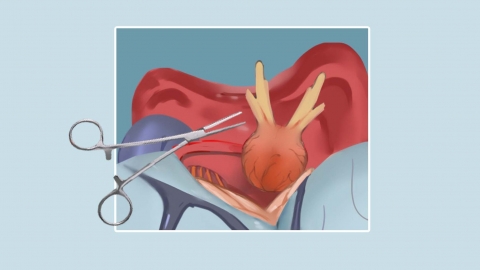What to do about vulvar cancer
The development of vulvar cancer may be caused by factors such as acidification of the constitution, heredity, human papillomavirus (HPV) infection, endocrine disorders, and chronic inflammatory stimulation. Treatment options for vulvar cancer mainly include surgery, radiotherapy, chemotherapy, immunotherapy, etc., and specific treatment plans should be comprehensively considered according to the patient's condition and tumor stage. If abnormalities occur, timely medical consultation is recommended. The following is a detailed analysis of each factor:

1. Acidification of the constitution: Due to changes in dietary structure and lifestyle habits, the constitution of modern people tends to become acidic. This acidic constitution may damage peripheral nerves and reduce immunity, providing a living environment for the growth of cancer cells. It is recommended to adjust the dietary structure and increase the intake of alkaline foods such as vegetables and fruits to improve the acidification of the constitution.
2. Genetic predisposition: Vulvar cancer may be influenced by genetic factors. If there is a family history of vulvar cancer, the risk of developing the disease increases accordingly. It is recommended to undergo regular related genetic testing to assess the risk and take targeted preventive measures, such as enhancing self-immunity and undergoing regular gynecological examinations.
3. Human papillomavirus (HPV) infection: Vulvar cancer is caused by persistent infection with certain high-risk types of HPV. These viruses work by damaging cellular DNA and promoting its malignant transformation. Treatments for HPV infection include surgical removal of the affected tissue, chemotherapy, and radiotherapy.
4. Endocrine disorders: Endocrine disorders, especially early menopause, are associated with the occurrence of vulvar cancer. Statistics show that women with vulvar cancer experience menopause 3-5 years earlier than the general female population. Endocrine disorders may lead to nutritional impairment and structural abnormalities of the vulvar epithelium, increasing the risk of cancer. It is recommended to improve endocrine disorders by adjusting lifestyle habits, maintaining emotional stability, proper diet, and other methods.
5. Chronic inflammatory stimulation: Long-term chronic inflammation or ulcerative lesions in the vulvar area can cause repeated stimulation of local tissues, increasing the risk of malignancy. Patients can take anti-inflammatory medications such as azithromycin capsules, moxifloxacin hydrochloride tablets, and levofloxacin mesylate tablets under a doctor's guidance to alleviate inflammation and reduce the risk of cancer. At the same time, maintaining vulvar hygiene, avoiding excessive cleaning, and preventing mucosal damage are also important.
Women should maintain a healthy lifestyle, including balanced nutrition, appropriate exercise, good mental health, and adequate sleep to enhance physical fitness and immunity.








